Memo Published October 9, 2025 · 5 minute read
Young Men: Not Sold On Trump, Alienated By Democrats
Third Way
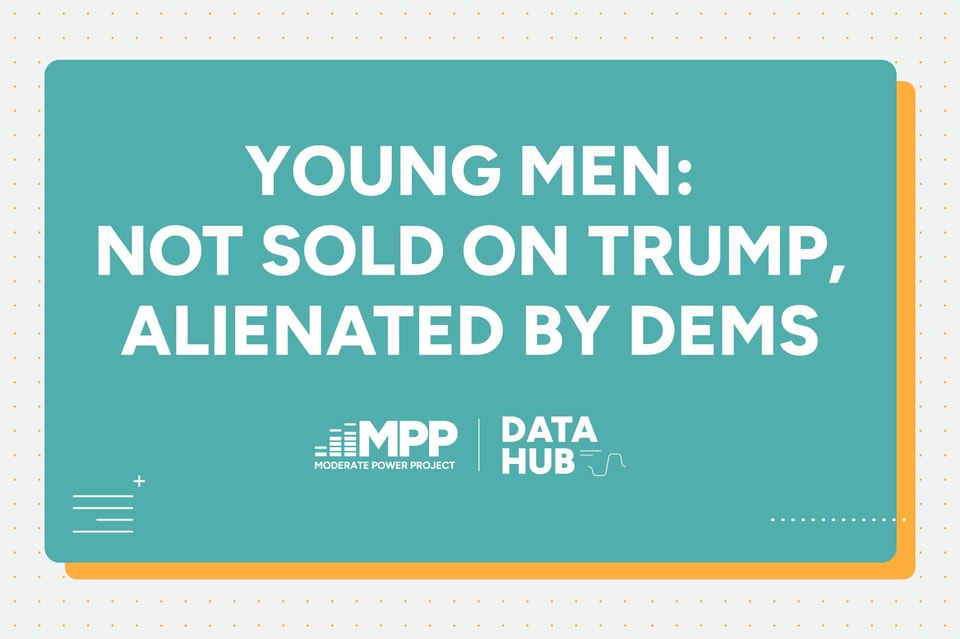
Young Men Have Swung Against Democrats
According to the data firm Catalist, Democratic support among young men, 18-to-29-years-old, dropped from 55% in 2020 to 46% in 2024, an 18-point net swing towards Trump, with even more acute swings among young men of color going back to 2012. To truly understand these trends and begin winning these voters back, Democrats must engage in difficult but necessary conversations about what has caused this chasm to open between young men and the Democratic Party on the economy, culture, and identity.
Third Way and HIT Strategies conducted three focus groups with soft Trump supporting young Black, Latino, and non-college white men, 18-to-29-years-old, from the seven presidential battleground states. These young men were overwhelmingly less ideological, lower propensity and low political news consumption voters. The findings should give pause to anyone who wants to beat back the MAGA forces.
1. What Got Us Here
For many, the 2024 election was the perfect storm of economic pain, cultural alienation, and distrust in the Democratic Party building up and converging at once—this was especially true for young men.
Economic Pain & Expectations
Above all else, the young men in our focus groups have been feeling an economic burden that has not been meaningfully addressed—affording everyday life, getting a good-paying job to provide for their family, and being able to do better than their parents. They feel economic expectations are stacked against them as young men, especially as fewer men enroll in college compared with women.
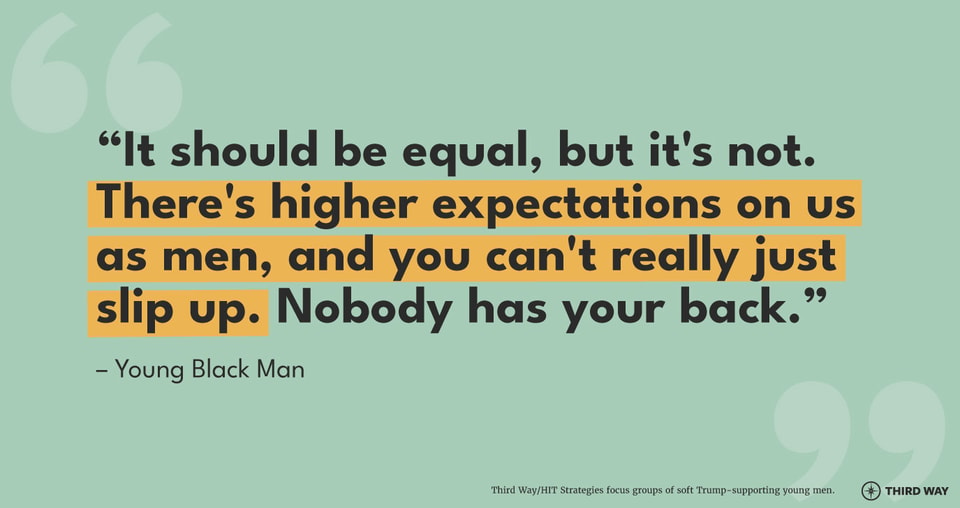
Masculinity In the Parties
Young men see men’s priorities represented in the Republican Party. And when they were asked to describe what those priorities were, it became readily clear that these young men view masculinity through a prism of their faith, financial independence, and a commitment to upholding family values—protecting, leading, and supporting a family—none of which they saw represented in the current Democratic Party.
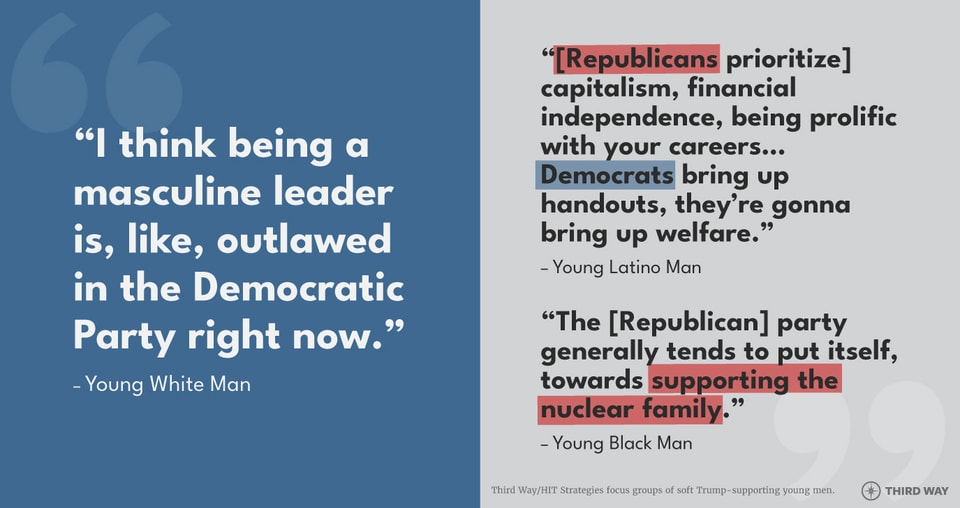
Perceptions of Vice President Harris and Democrats
Most importantly, these young men don’t feel that Democrats understand or speak about their economic concerns. Few of the young men in these groups could name a policy that Kamala Harris ran on last year or describe what her vision for the country was. The groups widely shared the belief that Democrats are out of the mainstream on social and cultural issues, and they felt that when they share their opinions on these issues, they are pushed away and looked down upon by those on the left—a sentiment that has been shared by former Democratic voters who lean more culturally moderate and conservative.
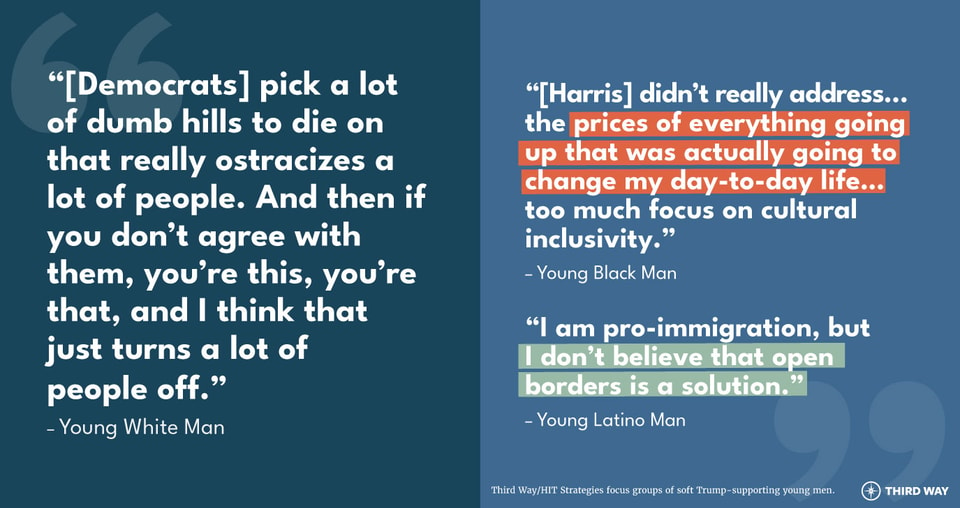
2. Current Landscape on Trump’s Performance
While the young men in our focus groups did indeed vote for Donald Trump, their support for him in this moment is lukewarm, with serious concerns about Trump’s handling of the economy and tariffs.
Tariffs and Manufacturing
Many of the young men are unhappy with how Trump has gone about implementing tariffs and has failed to bring prices down. Several are feeling the pain in their day-to-day lives, but most of the young men across the groups are willing to take a wait-and-see approach to see how Trump’s policies pan out. Interestingly, almost none of these young men could see themselves working the manufacturing jobs that Trump sought to bring back with tariffs, but they supported efforts to re-introduce those male-coded jobs.
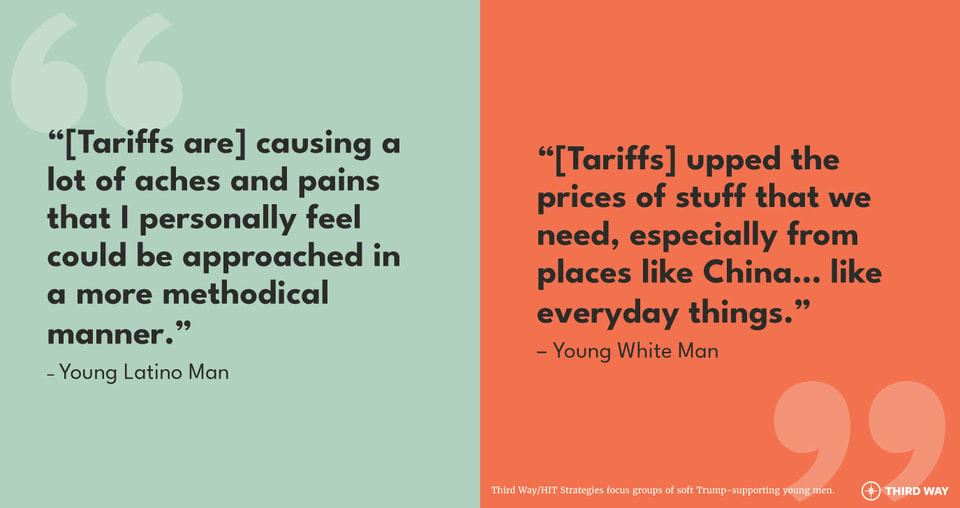
Deportations & Due Process
Many of the young men in these groups were particularly uncomfortable with Trump’s deportation of immigrants without due process to El Salvadoran prisons. Others deflected that several of Trump’s measures are necessitated from a broken immigration system perpetuated by both parties. Even though these groups were conducted before more aggressive ICE raids began in early June, there was already notable concern about the federal government deporting non-violent immigrants who had been in their communities for years and mistakenly deporting innocent people without due process and a proper trial.
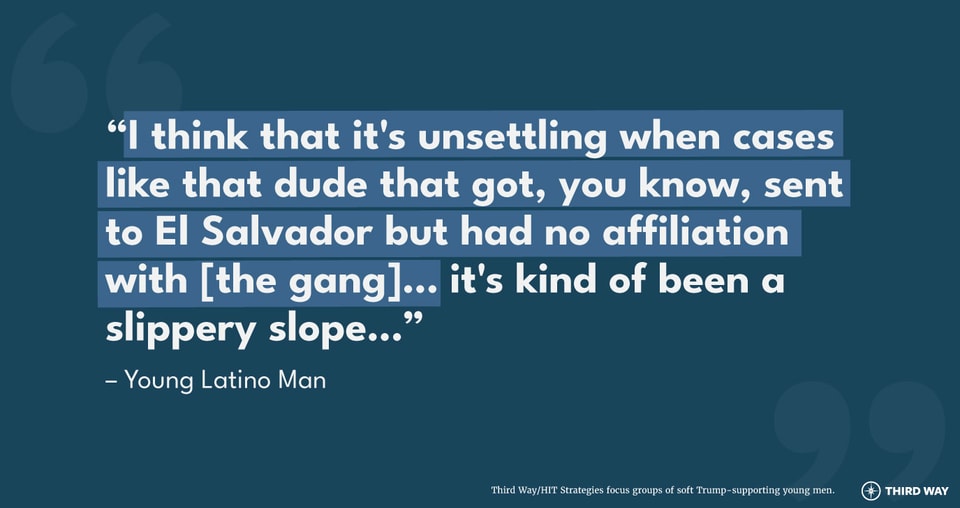
3. Looking Forward
The final component of these groups sought to understand what young men are looking for in their leaders and if they could ever see themselves voting for a Democratic presidential candidate in future elections.
Leadership Qualities
Similar to what these young men found appealing about Donald Trump, they described wanting leaders who are authentic, straight-shooting, and unafraid to take risks—not reading off of talking points or playing it safe.
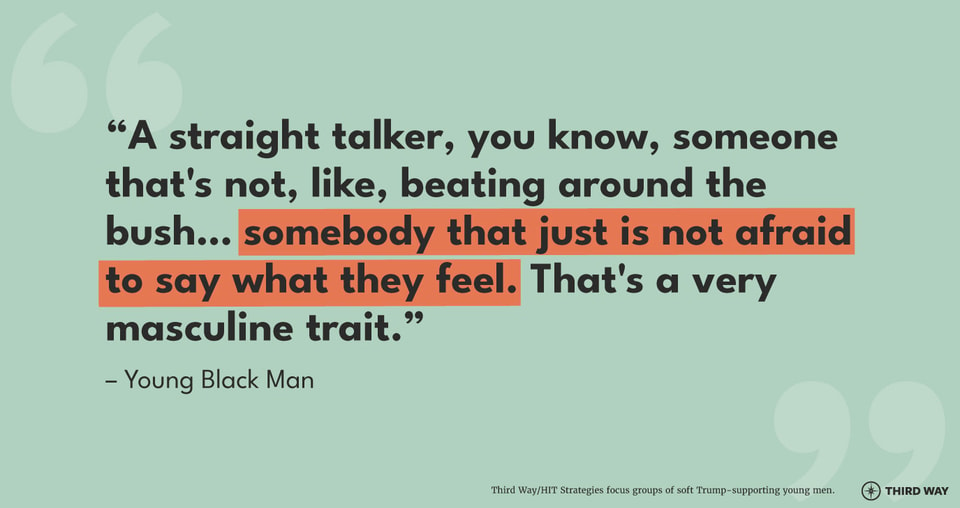
Future Democratic Leaders
The groups were shown clips of Pennsylvania Governor Josh Shapiro, Maryland Governor Wes Moore, and former Secretary of Transportation Pete Buttigieg.
The participants gravitated towards each of the clips for distinct reasons: Shapiro’s focus on non-college employee opportunities; Moore’s genuine care and interest in creating economic opportunity for young men; Buttigieg’s authenticity and his approach to having a decent civil discourse with conservatives. However, there was doubt among the participants that the Democratic Party’s base would ever tolerate some of these approaches, particularly Shapiro’s policy on non-college workers and Buttigieg’s heterodoxic approach to expanding the tent.
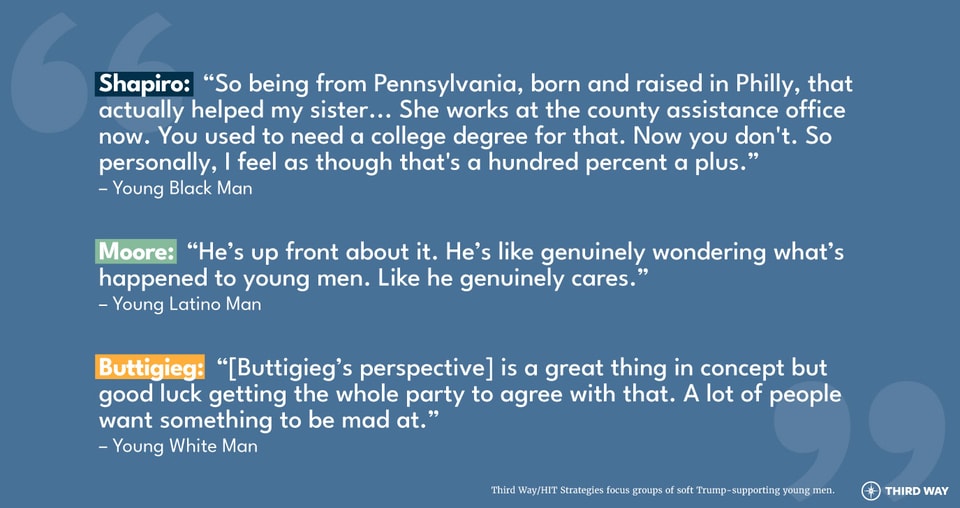
Conclusion & Guidance
To retake power, Democrats need a long-term plan to rebrand the party as one that is trusted to handle voters’ highest priority issues, that is mainstream on culture, and that is laser focused on implementing an aspirational working-class economic agenda. Democrats continue to have a significant challenge on their hands to reverse their slippage with young men, but there are real and tangible actions that they can take to be proactive in the leadup to 2026 and 2028.

